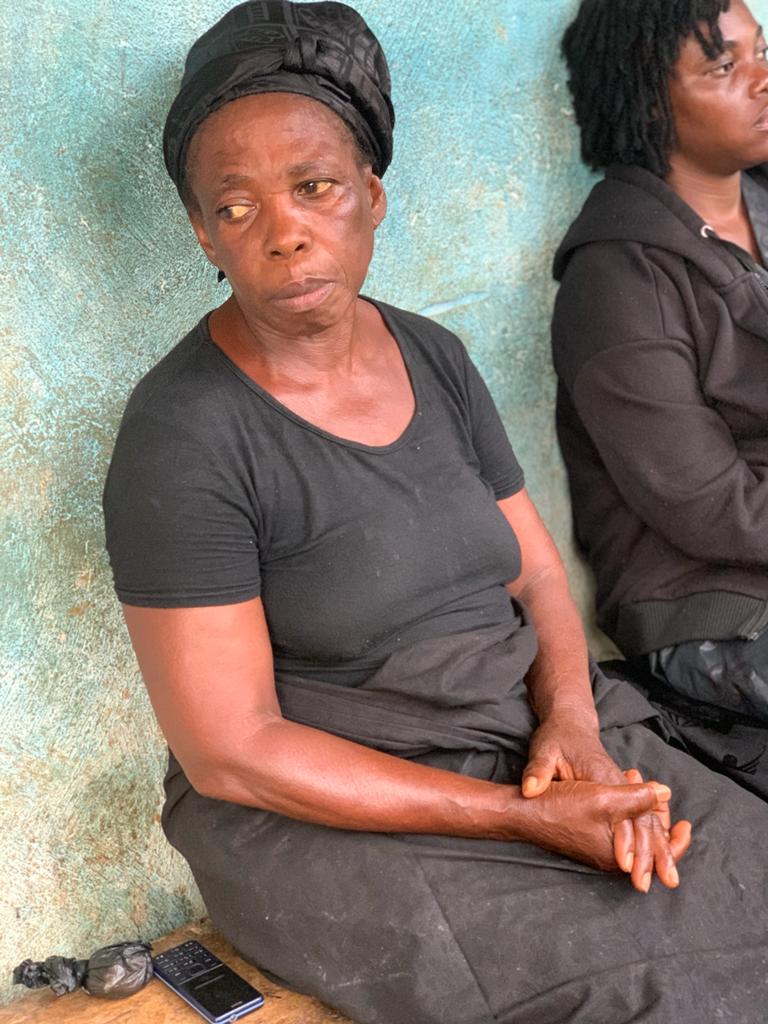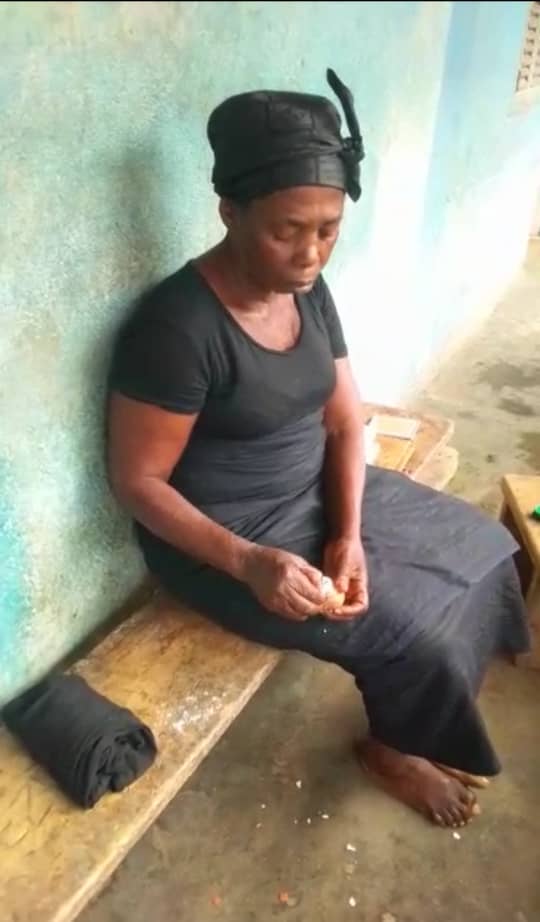
Widows go hungry -In observance of rites
The ordeal some widows go through in certain Ghanaian communities persists despite the crusade against the practice by civil society organisations and religious institutions.
The Mirror's interaction with some widows reveal a depressing condition, particularly, with regard to feeding.
Widowhood rites refer to the rituals and customs that are performed for a woman when her husband dies. Although the practice is not gender biased, it is usually women who go through this practice.
Advertisement
Madam Akosua Bimpomaa of Adansi Adiembra in the Ashanti Region, who is going through the rites after the demise of her 90-year-old husband some weeks ago, shared her ordeal with The Mirror last week.
Hunger
“l am hungry. But I have been told not to eat meals prepared with root crops such as cassava, yam or cocoyam till he is buried. Fufu is what keeps me full. I feel for fufu and not this whole new experience of one cup of beverage in the morning, one boiled egg around 11a.m. and boiled plantain at 5p.m”.
She recounted the stress she experienced taking care of her sick aged husband prior to his demise and how immediate she had to start the rites, saying: “ this makes me feel tired and hungry”.
“As soon as l lost my husband, my neighbours who came in to sympathise with me prescribed many things to embrace the rites. Before l realised, l had been ushered into it”, she said.
Though she was used to eating from the same bowl with her grandchildren, she was told not to eat with anyone except those who had gone through widowhood rites.
The 68-year-old woman shared a moment where her two-year- old granddaughter, Nana Pomaa, whom she shared meals with, cried so much the first time she refused to let her dip her fingers in her food.
“It was a very depressing moment for me watching her cry. I was so disturbed. The thing is, nobody has to eat with me and nobody has to eat my leftover food, “she added.
Describing some of her experience as “unbelievable“, she explained that “l didn’t know that l had to use black clothing I would not mind discarding, l was told immediately after the burial that I will bury the clothes I used for mourning either at the cemetery or at borla kese3 mu (dumpsite). l was not aware so l had been wearing some quality fabrics, it means I will throw them away”.
She said her worry was the sleeping position at night, revealing that she was not to lie on her back and had to cover up with a white sleeping cloth. In addition, she had to wear a loincloth “amonsin”, a traditional piece of material made in a way to look blood-stained. The assumption was that whenever the ghost (spirit) of the husband sneaked in at night, it would not be able to have sexual intercourse with her.
In all this, Madam Akosua Bimpomaa believed that the process was tiring and widows should be allowed to eat well because it could affect their health, especially in the first three months of mourning.
Diverse views
The Mirror observed that some members of the community had diverse views as to what she could eat or not. There were those who believed that she could add fufu to her daily meal while others disagreed.
Some were of the view that she could only eat heavily between 3p.m and 4p.m and get inside her bedroom at 5p.m. until the next morning.
Some of the traditional believers practised the principle of communality, mutual respect, caring and in the spirit of these teachings, occasionally, would walk in to ensure the rites are adhered to by enquiring whether Madam Bimpomaa was on course especially in relation to her food.
It was the members of the community who initiated the widowhood rites,as soon as one lost a spouse.

She peels the shell off an egg and takes it as a second meal
This reporter found that some community members initiated the process in a very subtle way when they visited to commensurate with the widow.
Though some of the widows were Christians too, they offered themselves for the rites as an indication that they cherished and found them relevant.
Residents
Eighty-eight year old Madam Akua Dwubi Kete said that widowhood rites were very important because the rituals were performed in order to end the relationship between the living spouse and the dead.
She said widows could take mashed fante kenkey with the belief that it would help them add on some flesh “in wait for the day of burial”.
She agreed that it was important to eat and nourish the body with shea butter during the rites.
A widow, Obaa Adwoa, said: “l didn’t obey all the rules. I was adding fufu made with cocoyam to my daily meal but I did not eat after 2p.m”.
Another widow, Akosua Akwaa, said she went through all the rites till the last day, admitting that there were days she was very hungry.
Widower
Mr Agyaku, who lost his wife five years ago, said he did not go through any rites for more than a month.
“I do not have that time. I wore a few black clothing when she died till the burial”, he explained.
Consequences
Although no proper explanation was given in relation to the consequences associated with the failure to go through the rites, The Mirror’s investigation revealed that the general belief was that not only would the widow suffer calamity, including a possible death, but there could be curses on her children and grandchildren.




